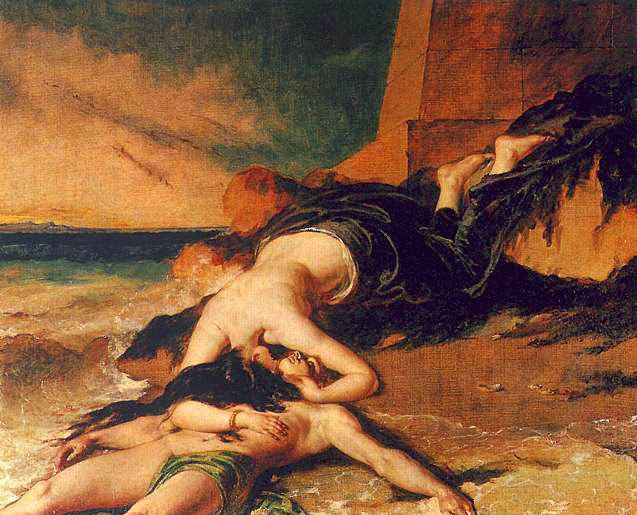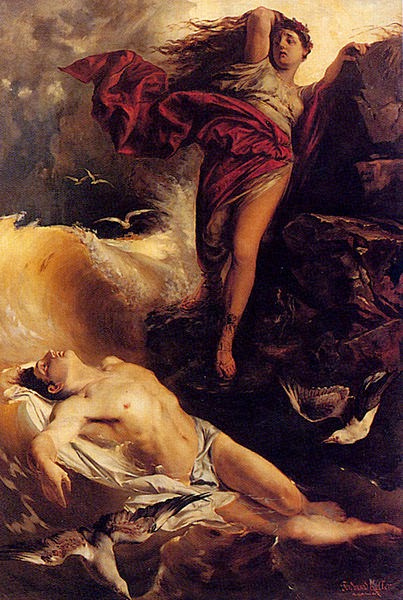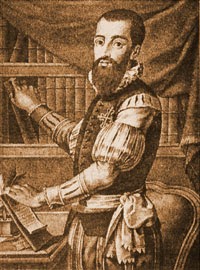Born in Toledo in 1501, de la Vega was one of the first Spanish poets to introduce Italian verse forms and techniques to Spain. Mastering five languages as well as having a good aptitude for music, de la Vega eventually joined the Spanish military and died at 35 years old from a wound sustained in battle in Nice, France. His poetry has been fortunate to be consistently popular during his life and up until present times.
In Sonnet XXIX, de la Vega explores the Greek myth of Hero (Ὴρὠ) and Leander (Λὲανδρος). Each night Leander swam the Hellespont (the modern Dardanelles) to be with his lovely Hero, who lived in a tower in Sestos by the sea. She would hang a lamp for him in her high tower to guide his path, however, on a particularly stormy night, the waves buffeted Leander, the wind blew out Hero's lamp, and brave Leander tragically drowned in the raging waters. Bereft, Hero threw herself from her tower into the pitiless sea, which joined them in death, as it had kept them apart in life.
 |
| Hero and Leander (1828) William Etty source Wikimedia Commons |
 |
| Hero and Leander (1621/22) Domenico Fetti source Wikimedia Commons |
 |
| Hero finding Leander (c. 1932) Ferdinand Keller source Wikimedia Commons |

 Log in with Facebook
Log in with Facebook 






